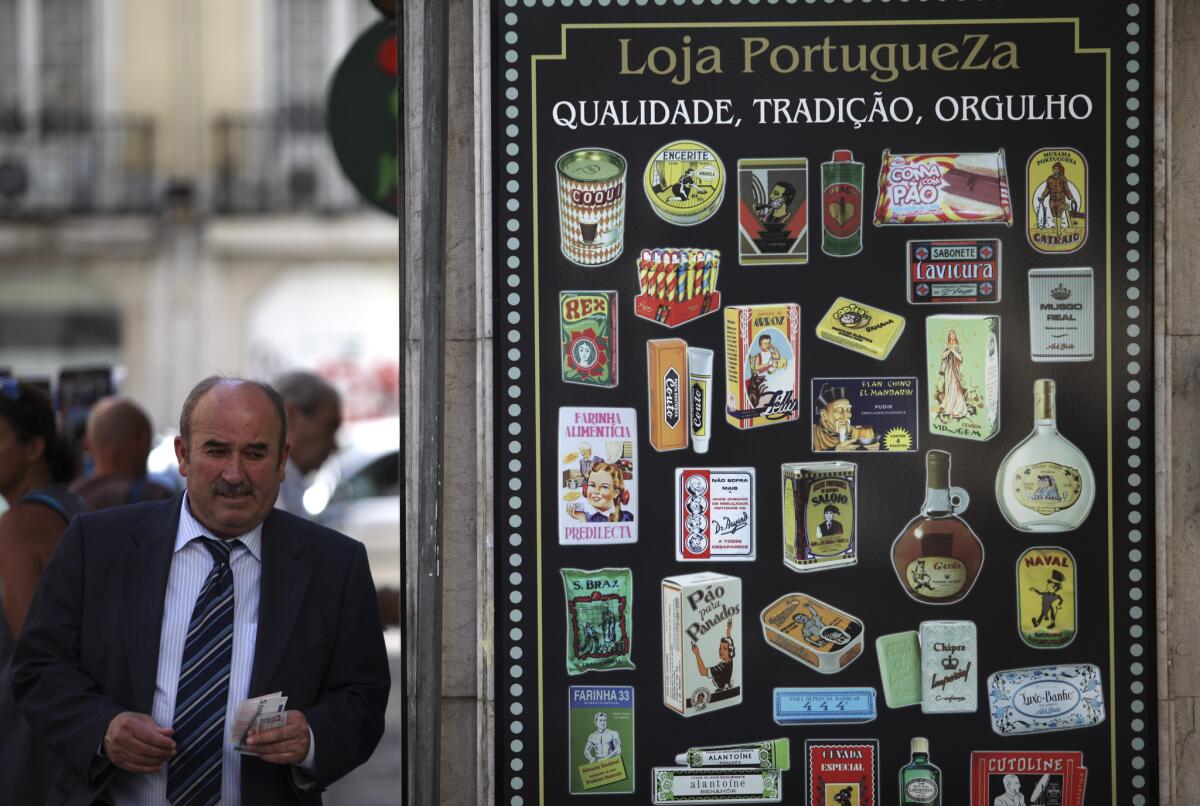Europe shows signs of economic recovery amid growth in Eurozone

- Share via
LONDON -- Europe’s economy is showing signs of recovery for the first time since 2011, according to figures released Wednesday by the European Commission.
The second quarter of 2013 showed distinct if fragile 0.3% economic growth collectively over the previous quarter for the 17 countries that share the euro currency.
The improvement was driven chiefly by Germany, where gross domestic product grew by 0.7% over the previous quarter, and France, with growth of 0.5%. Consumer spending, manufacturing and exports appear to have grown in both countries.
German consumer spending was temporarily boosted by a small housing boom helped by the European Central Bank’s low interest rates, said Ilja Nothnagel, director of the German Chamber of Commerce, speaking to the BBC. He predicted lower, but still positive, growth for Europe’s economic powerhouse.
Recovery forecasts were still gloomy for the southern European countries that use the euro, with Italy and Greece afflicted by negative growth and high unemployment. But even there figures showed at least a slowing in the economy’s downward trend.
Italy’s growth rate of -0.2% was an improvement over the -0.6% in the first quarter of this year. Comparing a different set of statistics, Greece showed a loss of -4.6% in the second quarter of 2013 compared with the same quarter of last year, an improvement on -5.6% during the first quarter compared with the same period in 2012.
The news was cautiously welcomed by Olli Rehn, vice president of the European Commission.
“This slightly more positive data is welcome -- but there is no room for any complacency whatsoever,” he said in his comment on the commission website, calling for no “self-congratulatory statements suggesting ‘the crisis is over.’”
Constantine Michalos, president of the Athens Chamber of Commerce and Industry, expressed skepticism to the BBC about his country’s troubled economy. Greece, along with Italy and Spain, was “still struggling to exit this tunnel of crisis,” he said on the morning radio news “Today” program.
Michalos pointed out that Greece has the highest unemployment rate in the European Union, at 27%, exacerbated by “the 63% figure which concerns youngsters between 16 and 25.”
Amid the gloom in southern Europe, surprise figures for Portugal showed growth of 1.1% for the second quarter, even though the country is still dogged by debt and unemployment.
David Marsh, author of two books on the euro, spoke to the BBC of a two-tier European recovery. Trade with northern Europe was not boosting southern Europe’s economy as hoped.
“The euro area is more than the Eurozone trading with itself,” he said, as Germany and the other creditor countries’ trade is expanding outside the euro area to Brazil, China, Russia and the United States.
“The southern group, the debtor group, are mired in recession -- the IMF [International Monetary Fund] has said recently that Spain will continue to have 25% unemployment for five years ... the price of getting their house in order.”
“There is two-speed Europe, big time,” he said.
[For the Record, 11:20 a.m. PST, Aug. 14: An earlier version of this online post and headline reported incorrectly that the recession had ended in the Eurozone. Most economists say such a determination must meet several factors, including two straight quarters of GDP growth.]
ALSO:
18 feared trapped aboard sunken India submarine
Kerry, on visit to Brazil, gets earful over NSA spying
Egyptian security forces storm pro-Morsi camps in deadly crackdown
More to Read
Sign up for Essential California
The most important California stories and recommendations in your inbox every morning.
You may occasionally receive promotional content from the Los Angeles Times.













